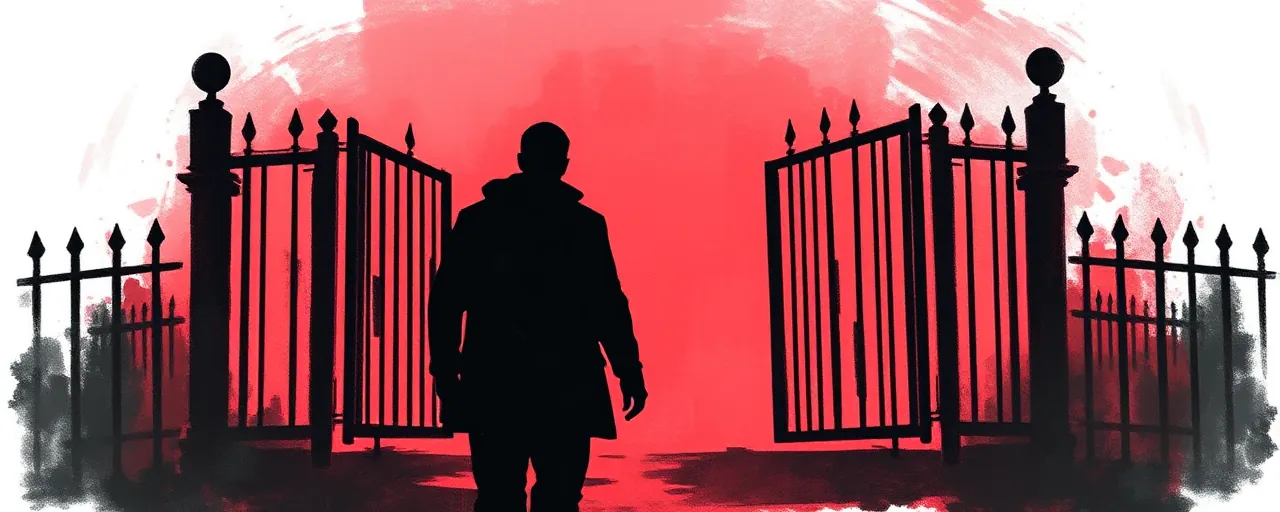A Verdict That Echoes Beyond Boston
Jean Morose Viliena, once the mayor of Les Irois, Haiti, now stands convicted in a Boston courtroom, his past laid bare before a federal jury. On March 28, 2025, the gavel fell, marking a rare moment of accountability for a man who orchestrated terror against his own people, then slipped into the United States under a veil of lies. This isn’t just a legal victory; it’s a clarion call to every American who believes in justice, a reminder that our nation cannot become a refuge for those who trample human dignity.
Viliena’s story is chilling. As mayor, he didn’t govern; he ruled through fear, backed by a militia known as Korega that turned political dissent into a death sentence. He ordered killings, maimed innocents, and silenced voices daring to speak truth, all while crafting a false narrative to secure a green card. His conviction on three counts of visa fraud exposes a deeper wound: the audacity of human rights abusers who see America as a hiding place, not a beacon of hope.
For too long, the United States has wrestled with its role in a world rife with violence and oppression. Viliena’s case forces us to confront an urgent question: What does it mean to uphold our values when men like him exploit our systems to escape their crimes? The answer lies in a resolute stand, one that prioritizes the vulnerable over the vicious.
The Human Cost of a Broken System
Consider the witnesses who faced Viliena in court, their courage a testament to the human spirit’s resilience. One man lost his brother to a bullet and a rock wielded by Viliena’s gang, a brutal reprisal for daring to testify against the mayor’s violence. Another, a journalist, saw his dream of a free radio station in Les Irois crushed when Viliena’s armed thugs stormed in, leaving him with a leg amputated and a colleague blinded by shotgun pellets. These are not abstract statistics; they’re lives shattered by a tyrant who then sought sanctuary among us.
Haiti’s torment isn’t new. Decades of political machines and militias, from the Tonton Macoute under Duvalier to today’s gang federations, have bled the nation dry. In 2024 alone, over 5,600 Haitians died in gang violence, with countless others scarred by sexual terror and displacement. Viliena’s reign fits this grim pattern, a microcosm of a country where power is seized through barrels of guns, not ballots. Yet he assumed he could outrun justice by crossing our border.
The U.S. Immigration and Customs Enforcement investigation that snared Viliena proves we have the tools to act. The Human Rights Violators and War Crimes Center, with over 180 active cases and 1,945 leads, stands as a bulwark against those who think they can hide here. But tools alone aren’t enough; we need unwavering commitment. Too often, critics argue, our enforcement falters, tangled in bureaucracy or swayed by geopolitical games. Viliena’s green card, granted despite his lies, exposes cracks in a system that must prioritize survivors over perpetrators.
Opponents might claim this focus on prosecution risks chilling legitimate immigration, painting all newcomers with a broad brush of suspicion. They’re not entirely wrong to worry about overreach; ICE’s deportation sweeps have sometimes swept up the innocent alongside the guilty. But that’s a call for precision, not paralysis. When we let men like Viliena slip through, we betray the Haitian migrants fleeing his kind of terror, their trauma compounded by a nation that fails to shield them from their tormentors.
History backs this urgency. From the Duvalier era to the chaos following President Moïse’s 2021 assassination, Haiti’s people have endured relentless violence, driving waves of migration. Studies reveal staggering rates of depression and anxiety among these refugees, their wounds deepened by inadequate support here. Welcoming them while barring their oppressors isn’t just moral; it’s a practical necessity for healing a diaspora battered by decades of pain.
A Stand for Justice, Not Just Borders
Viliena’s conviction sends a message: America won’t be a dumping ground for despots. The Justice Department and ICE deserve applause for doggedly pursuing this case, leveraging interagency might to pierce his web of deceit. Yet this triumph is a beginning, not an end. With 79,000 lookouts issued since 2003 and 390 violators stopped, the Human Rights Violators and War Crimes Center proves we can root out evil. But resources lag, and legal hurdles loom, especially when evidence lies buried in Haiti’s chaos.
Some voices, often from the enforcement-first crowd, insist we double down on walls and deportations, arguing that cases like Viliena’s justify blanket crackdowns. They miss the point. This isn’t about closing doors; it’s about ensuring the right people walk through them. Indiscriminate policies punish the persecuted alongside the persecutors, a lazy shortcut that undermines our moral clarity. True security lies in targeting the guilty with surgical precision, not casting a net over the desperate.
The stakes are tangible. Every Haitian migrant arriving with scars of violence, every child haunted by memories of militia raids, deserves a nation that stands firm against their abusers. Viliena’s sentencing on June 20, 2025, offers a chance to affirm that commitment, to show that visa fraud isn’t a petty lie but a gateway for monsters. We owe it to the witnesses who risked everything to face him, and to a world watching whether America still means what it says about justice.
